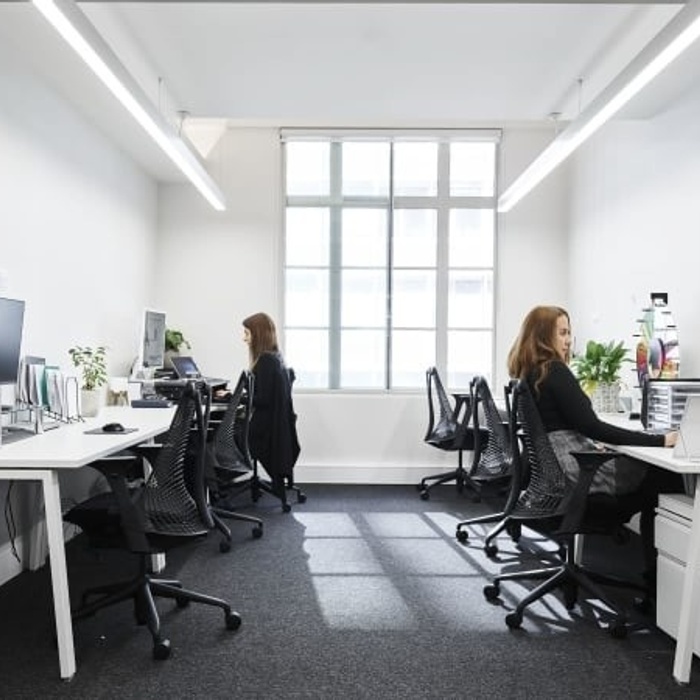
Australian Flexible Office Market Trends
The Australian Flexible Office Market has changed rapidly over the past 2 years. Businesses have had to completely re-evaluate their workspace needs and this has had an immediate impact on the demand and growth of the flex industry.
Prior to COVID-19 many businesses were already exploring flexible office space as another option in their real estate toolbox. Demand from Australian firms had been growing steadily over the last three years, and there is a considerable planned new supply coming online in the coming twelve months to meet it.
Technology as a tool for connection
The isolation measures brought about by COVID-19 have resulted in a turbocharged adoption of technology. For the remote worker, there are a plethora of tools now being used for project management, video conferencing, cloud storage, and chat communication. In fact, had this pandemic occurred even five years ago this would have been a far less connected isolation.
A hybrid model of work featuring HQs, regional flexible spaces, and home working could become our new normal
Now, as expectations build for an easing of COVID-19 restrictions, we anticipate companies will be assessing their ‘return to office’ plans. For many, there are now more options than the binary decision of work at ‘home or headquarters’. Employees (and employers) have experienced the benefits of greater workplace flexibility. We expect organisations will recognise the value of working closer to home and examine a ‘hub and satellite’ approach.
More private office, less coworking desk

It wasn't that long ago that terms such as "Hotdesk" and "Coworking" were used to describe flexible office space. But now with COVID-19, new social distancing guidelines and an aversion to sharing any kind of space with crowds of people, shared offices may seem to fly in the face of the isolation advice from the Government. However, the reality is that shared floors of disparate companies sitting alongside each other have been in decline for some time. Instead, now over 80% of spaces offered are turnkey private offices providing security and safety for individuals or teams of a hundred.
“Flexible Office Space”: A better industry definition
The flexibility on offer is vast with larger spaces being tailored to suit the tenants. Flexible options include the ability to range from 1 to 1,000+ employees, from single offices to multiple floors and the option of moving between offices as companies scale up (or down), all whilst ensuring they only pay for what they use rather than carry surplus space.
Providing more “Renewal opportunities”
COVID-19 has significantly impacted the coworking areas of most flexible offices with many businesses taking advantage of the situation to pause month-to-month contracts and putting membership on hold to save costs. Even those businesses on six or twelve-month term agreements will have their terms come around for renewal sooner than traditional leases. As these contracts expire, tenants of flexible offices will be in a position to renegotiate terms and size of office space more quickly and cost-effectively than those businesses in a traditional lease.
Creating “Premium Agility”

Becoming more popular are dedicated and multiple floors available for corporates looking for premium trophy office space as a managed service. Operators are working with their tenants to understand their requirements and build out bespoke spaces to meet customer needs. While, many operators advertise a higher density than traditional leased premises, almost every operator will readily tailor an office to meet customer’s needs within a relevant budget.
Frequently Asked Question
Is the office dead?
No. Though, the office as we know it will never be the same, it will still be an important gathering place for employees to gather, contribute to the culture and get work done. Tomorrow's office will be very different, but it's far from dead.
Is working from home the future of work?
Yes, for some people and businesses, working from home may be the right fit for the long term. At Rubberdesk, we expect to see more businesses provide options for members of their team to work from home well into the future. But, if you live in a small flat with others, have young kids at home and lack privacy, working from home is far from ideal.
What will the future of work look like?
In the short term, many people will continue to work from home on a daily basis, while others will eventually return to the head office on set days of the week, to allow for physical distancing. Post-pandemic, we expect to see companies provide more options for staff to work from home, the head office, or a satellite office closer to where they live.
Local market experts with you every step of the way.
As specialist brokers in the flexible office market, Rubberdesk is across all the options, offers and availability. We have real time pricing for thousands of spaces listed by hundreds of providers to help find your next office.
It's EASY, FAST and FREE to use Rubberdesk.
Start by telling us what you need.
We'll give you a call back with a bespoke shortlist of options to discuss.
Or give the experts a call 1300 433 757
